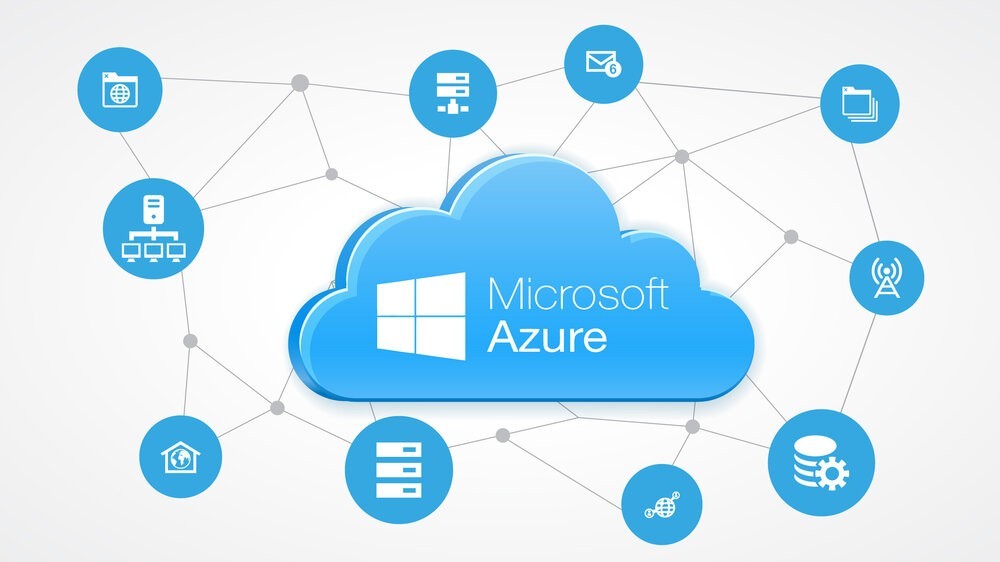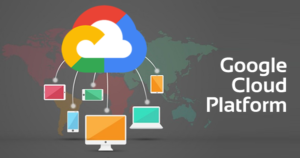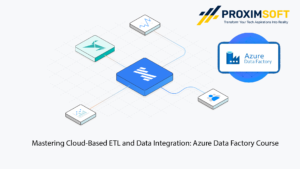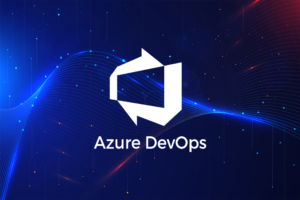Azure Data Engineering Essentials

Welcome to Proximsoft’s Azure Data Engineer course, your entry point to acquiring the skills needed for a successful career in the dynamic field of data engineering. At Proximsoft, we take pride in providing a comprehensive curriculum that blends theory, practical case studies, and hands-on capstone projects. Our course is thoughtfully crafted by industry experts to ensure you develop the expertise sought after by recruiters globally.
Why Learn Azure Data Engineering?
Embark on a transformative journey into the world of data engineering with our Azure Data Engineer course. Here’s why this course is crucial for your career growth:
- The role of a data engineer is vital in preparing data for analytical and operational purposes, working closely with analytics teams and data scientists.
- Proximsoft’s course covers the complete data engineering lifecycle, from data collection to deploying solutions, equipping you with skills in data cleansing, exploration, transformation, and integration.
- Gain proficiency in a wide range of tools and technologies such as Statistical Analysis, Text Mining, Regression Modeling, Hypothesis Testing, Predictive Analytics, Machine Learning, Deep Learning, Neural Networks, Natural Language Processing, R Studio, Tableau, Spark, Hadoop, R programming, and Python.
- Proximsoft is recognized as a leading Data Science training institute in the USA, offering a smooth transition from training to placement.
| Mode of Training | Online live Interactive sessions |
| Duration of the Training | 6 weeks |
| Training duration per day | 60 – 90 min session |
| Software Access | Software will be installed/server access will be provided, whichever is possible |
| Training Materials | Soft copy of the material will be provided during the training |
| Training fee | Depends on the Requirement |
| Resume Preparation | Yes, at the end of the course based on the JD |
| Interview Preparation | Yes, by sharing some FAQ’s |
| Mock calls | Yes, 2 Technical Mock calls |
| Internship Project | Yes |
| Certification | Yes, at the end of the training |
| JOB Assistance | Yes |
| JOB Support | Yes |
| Weekdays | 6AM -2 PM EST & 6-11:30 PM EST (student can pick any 1 hr) |
| Weekends | 8 AM – 12 PM EST (student can pick any 2 hrs) |
What I will learn?
- Understand Cloud Computing Concepts, including different cloud models, deployment models, and types of cloud services.
- Explore Core Azure services, architectural components, solutions, and management tools.
- Dive into Security, Privacy, and Compliance in the Azure environment, covering network connectivity, identity services, governance methodologies, and monitoring.
- Master Azure Pricing and Support, learning about subscriptions, cost management, support options, Service Level Agreements (SLAs), and the service lifecycle.
- Explore Azure SQL Database, covering its introduction, service tiers, deployment, monitoring, and tuning.
- Learn about Azure Storage Service, including account creation, performance tiers, replication, containers, blobs, and storage security.
- Gain insights into Azure Data Lake, its architecture, provisioning, and practical usage.
- Understand Azure Data Factory, its key components, linked services, datasets, and practical scenarios and use cases.
- Explore advanced concepts in Azure Data Factory, including triggers, self-hosted integration runtime, data migration, and integration with various services like Azure Key Vault, Azure Logic Apps, AWS S3, Snowflake, Azure CosmosDB, and more.
- Master Data Flows in Azure Data Factory, covering transformations, joins, aggregations, dimensions, slowly changing dimensions, and performance metrics.
Course Content
Module 1: Cloud Computing Concepts
- What is the “Cloud”?
- Why cloud services
- Types of cloud models
- Deployment Models
- Types of cloud services
- Infrastructure as a Service
- Platform as a Service
- Software as a Service
- Comparing Cloud Platforms
- Microsoft Azure
- Characteristics of cloud computing
- On-demand self-service
- Broad network access
- Multi-tenancy and resource pooling
- Rapid elasticity and scalability
- Measured service
- Cloud Data Warehouse Architecture
- Shared Memory architecture
- Shared Disk architecture
- Shared Nothing architecture
Module 2: Core Azure services
- Core Azure Architectural components
- Core Azure Services and Products
- Azure solutions
- Azure management tools
Module 3: Security, Privacy, Compliance
- Securing network connectivity
- Core Azure identity services
- Security tools and features
- Azure Governance methodologies
- Monitoring and reporting
- Privacy, compliance, and data protection standards
Module 4: Azure Pricing and Support
- Azure subscriptions
- Planning and managing costs
- Azure support options
- Azure Service Level Agreements (SLAs)
- Service Lifecycle in Azure
Module 5: Azure SQL Database
- Introduction Azure SQL Database.
- Comparing Single Database
- Managed Instance
- Creating and Using SQL Server
- Creating SQL Database Services
- Azure SQL Database Tools
- Migrating on premise database to SQL Azure
- Purchasing Models
- DTU service tiers
- vCore based Model
- Serverless compute tier
- Service Tiers
- General purpose / Standard
- Deployment of an Azure SQL Database
- Elastic Pools
- What is SQL elastic pools
- Choosing the correct pool size
- Creating a New Pool
- Manage Pools
- Monitoring and Tuning Azure SQL Database
- Configure SQL Database Auditing
- Export and Import of Database
- Automated Backup
- Point in Time Restore
- Restore deleted databases
- Long-term backup retention
- Active Geo Replication
- Auto Failover Group
Module 6:Azure Storage Service
- Storage Service and Account
- Creating a Storage Account
- Standard and Premium Performance
- Understanding Replication
- Hot, Cold and Archive Access Tiers
- Working with Containers and Blobs
- Types of Blobs
- Block Blobs
- Append Blobs
- Page Blobs
- Blob Metadata
- Soft Delete
- Azure Storage Explorer
- Access blobs securely
- Access Key
- Account Shared Access Token
- Service Shared Access Token
- Shared Access Policy
- Storage Service Encryption
- Azure Key Vault
Module 7: Azure Data Lake
- Introduction to Azure Data Lake
- What is Data Lake?
- What is Azure Data Lake?
- Data Lake Architecture?
- Working with Azure Data Lake
- Provisioning Azure Data Lake.
- Explore Data Lake Analytics
- Explore Data Lake Store
- Uploading Sample File
- Using Azure Portal
- Using Storage Explorer
- Using Azure CLI
Module 8: Azure Data Factory
- What is Data Factory?
- Data Factory Key Components
- Pipeline and Activity
- Linked Service o Data Set
- Integration Runtime Provision Required Azure Resources
- Create Resource Group
- Create Storage Account
- Provision SQL Server and Create Database
- Provision Data Factory
Module 9: Working with Copy Activity
- Understanding Data Factory UI
- Copy Data from Blob Storage to SQL Database
- Copy data from storage account to storage account
- Create Linked service o Create Dataset
- Create Pipeline ∙ Integration Service
- Copy Data from on-premise SQL Server to Blob Storage Working with Activities
- Understanding Lookup Activity
- Understanding for Each Activity
- Filter Activity
- Get Metadata Activity Azure
- Lift and Shift
- Provisioning Azure – SSIS Integration Runtime
- Execute SSIS Packages from Azure
- Execute SSIS Packages from SSISDB Triggers,
- Monitoring Pipeline
- Debug Pipeline
- Trigger pipeline manually
- Monitor pipeline
- Trigger pipeline on schedule
Module 10 : Practical Scenarios and Use Cases
- ADF Introduction
- Important Concepts in ADF
- Create Azure Free Account for ADF
- Integration Runtime and Types
- Integration runtime in ADF-Azure IR
- Create Your First ADF
- Create Your First Pipeline in ADF
- Azure Storage Account Integration with ADF
- Copy multiple files from blob to blob
- Filter activity __ Dynamic Copy Activity
- Get File Names from Folder Dynamically
- Deep dive into Copy Activity in ADF
- Copy Activity Behavior in ADF
- Copy Activity Performance Tuning in ADF
- Validation in ADF
- Get Count of files from folder in ADF
- Validate copied data between source and sink in ADF
- Azure SQL Database integration with ADF
- Azure SQL Databases – Introduction Relational databases
- Creating Your First Azure SQL Database
- Deployment Models
- Purchasing Modes
- Overwrite and Append Modes in Copy Activity
- Full Load in ADF
- Copy Data from Azure SQL Database to BLOB in ADF
- Copy multiple tables in Bulk with Lookup & ForEach in Data Factory
- Logging and Notification Azure Logic Apps
- Log Pipeline Executions to SQL Table using ADF
- Custom Email Notifications Send Error notification with logic app
- Use Foreach loop activity to copy multiple Tables- Step by Step Explanation
- Incremental Load in ADF
- Incremental Load or Delta load from SQL to Blob Storage in ADF
- Multi Table Incremental Load or Delta load from SQL to Blob Storage
- Incrementally copy new and changed files based on Last Modified Date
- Azure Key Vault integration with ADF
- Azure Key Vault, Secure secrets, keys & certificates in Azure Data
- ADF Triggers:
- Event Based Trigger in ADF
- Tumbling window trigger dependency & parameters
- Schedule Trigger
- Self Hosted Integration Runtime
- Copying On Premise data using Azure Self Hosted integration Runtime
- Data Migration from On premise SQL Server to cloud using ADF
- Load data from on premise sql server to Azure SQL DB
- Data Migration with polybase and Bulk insert
- Copy Data from sql server to Azure SQL DW with polybase & Bulk Insert
- Data Migration from On premise File System to cloud using ADF
- Copy Data from on-premise File System to ADLS Gen2
- ToCopying data from REST API using ADF
- Loop through REST API copy data TO ADLS Gen2-Linked Service Parameters
- AWS S3 integration with ADF
- Migrate Data from AWS S3 Buckets to ADLS Gen2
- Activities in ADF
- Switch Activity-Move and delete data
- Until Activity-Parameters & Variables
- Copy Recent Files From Blob input to Blob Output folder without LPV
- Snowflake integration with ADF
- Copy data from Snowflake to ADLS Gen2
- Copy data from ADLS Gen2 to Snowflake
- Azure CosmosDB integration with ADF
- Copy data from Azure SQLDB to CosmosDB
- Copy data from blob to cosmosDB
- Advanced Concepts in ADF
- Nested ForEach -pass parameters from Master to child pipeline
- High Availability of Self Hosted IR &Sharing IR with other ADF
- Data Flows Introduction
- Azure Data Flows Introduction
- Setup Integration Runtime for Data Flows
- Basics of SQL Joins for Azure Data Flows
- Joins in Data Flows
- Aggregations and Derive Column Transformations
- Joins in Azure DataFlows
- Advanced Join Transformations with filter and Conditional Split
- Data Flows – Data processing use case1
- Restart data processing from failure
- Remove Duplicate Rows & Store Summary Credit Stats
- Difference Between Join vs.Lookup Transformation & Merge Functionality
- Dimensions in Data Flows
- Slowly Changing Dimension Type1 (SCD1) with HashKey Function
- Flatten Transformation
- Rank, Dense_Rank Transformations
- Data Flows Performance Metrics and Data Flow Parameters
- How to use pivot and unpivot Transformations
- Data Quality Checks and Logging using Data Flows
- Batch Account Integration with ADF
- Custom Activity in ADF
- Azure Functions Integration with ADF
- Azure HDInsight Integration with ADF
- Azure HDInsight with Spark Cluster
- Azure Databricks Integration with ADF
- ADF Integration with Azure Databricks
- Azure Data Lake Analytics integration with ADF


Course level:All Levels
Course Duration: 30h
Requirements
- Begin your Azure Data Engineer certification journey with the following prerequisites:
- A solid understanding of fundamental data engineering concepts, including proficiency in data modeling, data warehousing, and ETL processes.
- Competence in SQL querying and programming languages, particularly Python.
- Prior experience with Azure services, such as Azure Data Factory, Azure SQL Database, and Azure Databricks.
- Familiarity with cloud computing principles and practices.
- Strong analytical and problem-solving skills.
Talk to Our Career Advisor
FAQ'S
No specific prerequisites are required. The course is designed for beginners, and individuals with basic familiarity with data technologies will find it accessible.
Our course stands out with its comprehensive coverage of the data engineering lifecycle and hands-on experience with Azure services. It caters to both beginners and those with some data technology background, ensuring a thorough learning experience.
Yes, you'll have access to Azure resources for practical exercises and projects. The course is designed to give you hands-on experience with Azure Data Engineering services.
Absolutely! The course is designed for diverse backgrounds. Whether you're in finance, management, or a non-technical field, the content is structured to be accessible and beneficial.
This course equips you with the skills needed for a successful career in data engineering. Whether you're starting fresh or looking to enhance your existing knowledge, Proximsoft's Azure Data Engineer course prepares you for the demands of the industry.




